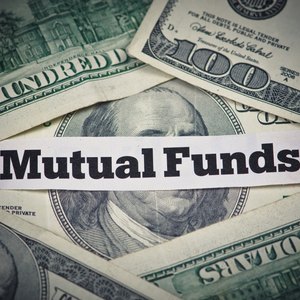
Most people have neither the time nor interest to research and select individual stocks and bonds for their investment portfolios, and that's where mutual funds come in. Mutual funds can invest in a variety of stocks, bonds and other assets, giving you diversification, which means a decline in value in any one stock or bond won't significantly hurt your overall return. A handful of well-chosen mutual funds or index funds can offer a diversified portfolio that allows the individual investor to spend his or her time on other pursuits. Thousands of mutual funds are available that can satisfy the objectives of different types of investors.
Tips
A mutual fund acts as a diversified, relatively stable investment vehicle that allows casual investors to profit from market action without requiring constant oversight and management on their part.
Diversification of Assets
Investors are often advised that they shouldn't "put all their eggs in one basket." Investors who have too high of a percentage of their assets in one or two stocks can be severely affected if one of the companies goes belly-up. Most financial experts say investors should have at least 15 stocks in their portfolios. It takes a lot of time and effort to keep up with that many companies. Conversely, mutual funds hold a number of stocks, which gives investors instant diversification and protects them from a sharp decline in any one holding.
Exploring Growth Funds
Some mutual fund investors are looking for rapid growth in the value of their funds. Stocks have historically offered the best long-term returns of any asset class, though it can be an up-and-down ride. Stock funds that are labeled "growth" typically invest in companies with bright prospects, while "value" funds target stocks that seem inexpensive compared with the company's earnings.
When discussing mutual fund investments, it is important to note the distinction between closed-end and open-end funds. Whereas there is no limit to the number of open-end fund shares that can be purchased or distributed, closed-end funds feature a limited number of shares. Open-end funds are also not traded on the open market, whereas closed-end funds are traded through standard markets.
Evaluating the Benefits of ETFs
Exchange-traded funds, or ETFs, have become attractive investment opportunities for many individuals due to the numerous benefits they offer. Thanks to a highly diverse grouping of assets, ETFs are considered a relatively stable form of investment, and are linked to every major index today. Compared to mutual funds, ETFs typically feature a lower expense ratio, making them more affordable for investors.
Identifying Steady Income Opportunities
Other fund investors care more about receiving income from their investments. Numerous stock funds invest in companies with high dividend payouts. Bond funds also can provide steady income, as can funds that invest in real estate investment trusts, or REITs. All these income-focused funds pass the yields along to their investors, usually on a monthly or quarterly basis. Yields of 3 percent to 7 percent are often available with income-oriented mutual funds.
Gaining International Exposure
Some large international firms offer their shares on U.S. markets, but others don't. For example, individual investors can have a hard time getting access to shares in the fast-growing Chinese market. But international-focused mutual funds have an easier time investing in these shares. Exposure to overseas stocks and mutual funds may add much-needed diversification and open the door to additional lucrative opportunities.
Benefitting From Low Fees
Stock picking can be expensive thanks to broker commissions, but many "no-load" mutual funds are available that don't charge investors anything. Many other funds charge investors less than 1 percent a year for operational fees.
Investors looking for especially inexpensive funds might consider index funds, which charge fees as low as 0.1 percent per year. In 2018, Fidelity even introduced zero-fee index funds. These funds usually hold every stock or bond in a given asset class, which offers tremendous diversification at a low cost.
References
- Kiplinger: Kiplinger's 25 Favorite No-Load Mutual Funds
- Marketwatch: 25 Largest Mutual Funds
- Morningstar: Funds
- Open-end fund - Wikipedia
- Morningstar. "Fact Sheet: The New Morningstar Style Box™ Methodology," Page 1. Accessed Sept. 30, 2019
- Morningstar. "Early Evidence on the Department of Labor Conflict of Interest Rule: New Share Classes Should Reduce Conflicted Advice, Likely Improving Outcomes for Investors," Page 6. Accessed Aug. 3, 2020.
- SEC. "Final Rule: Investment Company Names." Accessed Aug. 3, 2020.
- Fidelity. "Fidelity Magellan Fund." Accessed Aug. 3, 2020.
- Fidelity. "Lessons From an Investing Legend." Accessed Aug. 4, 2020.
- The Washington Post. "Fidelity Manager to Retire." Accessed Aug. 4, 2020.
Writer Bio
Ryan Cockerham is a nationally recognized author specializing in all things innovation, business and creativity. His work has served the business, nonprofit and political community. Ryan's work has been featured at Zacks Investment Research, SFGate Home Guides, Bloomberg, HuffPost and more.

